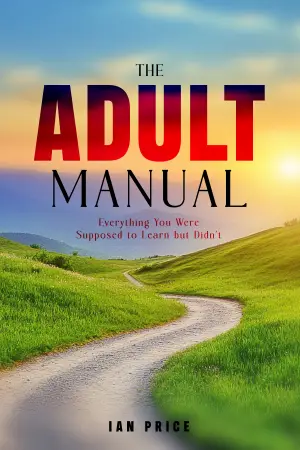I recently finished “Unf*ck Yourself: Get Out of Your Head and Into Your Life” by Gary John Bishop, and I must say, it’s a book that deeply resonated with me on many levels. As someone who regularly delves into self-help and empowerment literature, I was drawn to this title for its provocative title and the promise of a straightforward, no-nonsense approach to personal growth.
Bishop’s book is described as a “refreshing, BS-free self-empowerment guide” that offers tough-love advice to help readers push past self-imposed limitations. He emphasizes, “It isn’t other people that are standing in your way; it isn’t even your circumstances that are blocking your ability to thrive. It’s yourself and the negative self-talk you keep telling yourself.” This sentiment struck a chord with me and motivated me to dive in and see how he structured his guidance.
One major positive of this book is that it’s incredibly actionable. Bishop breaks down his assertions into clear, manageable steps, making them easy to understand and apply. He presents seven key assertions that challenge readers to take responsibility for their lives. This practical focus is echoed in the feedback from other readers. For example, one reviewer noted how the book provided “practical advice that helps you get your life back on track,” especially during tough times like breakups. I found the tone throughout the book to be refreshingly straightforward, often humorous, and filled with ‘gold nuggets’ of wisdom that I appreciated.
Moreover, many readers have praised the clarity of Bishop’s writing. It isn’t bogged down with jargon, making it accessible to newcomers in the self-help arena. This clarity was evident in my experience as well; I often found myself nodding along, feeling like I was underlining key points in a conversation rather than reading a dense text.
However, the book isn’t without its drawbacks. Some readers note that it might not resonate well with everyone. For instance, while many love the tough-love approach, others could find it brusque or off-putting—particularly if they’re sensitive to critiques. Bishop explicitly states, “if you are easily offended, do not read this book,” which might deter some readers who could most benefit from its insights. One reviewer expressed mixed feelings, mentioning how the author sometimes contradicts himself, making certain passages confusing.
Additionally, I recognized some limitations in Bishop’s treatment of complex ideas. While he aims to shift readers’ focus from thoughts to actions, he sometimes oversimplifies these concepts in a way that could alienate those with a deeper interest in the philosophies he touches upon. A critical reader remarked on this in their review, suggesting the book could benefit from a more focused narrative—as if certain areas of philosophical discussion could have been better fleshed out.
Despite these drawbacks, I found “Unfck Yourself” to be an engaging read. It affirmed many thoughts I’d had about taking action versus being paralyzed by overthinking. The tone is genuine, the advice is practical, and it motivates a push toward becoming the ‘unfcked’ version of ourselves we’re meant to be.
To conclude, if you’re looking for a no-frills, down-to-earth guide to self-empowerment, Gary John Bishop’s “Unf*ck Yourself” is a journey worth embarking on. Although it has its rough edges—particularly in how some philosophical concepts are woven into the text—the overall motivational quality and practical takeaways far outweigh any downsides. I highly recommend it to anyone ready to face their limitations without sugar-coating. You may just find the tough love you didn’t know you needed. Overall, I’d rate this book a solid 4.5 out of 5 stars.








